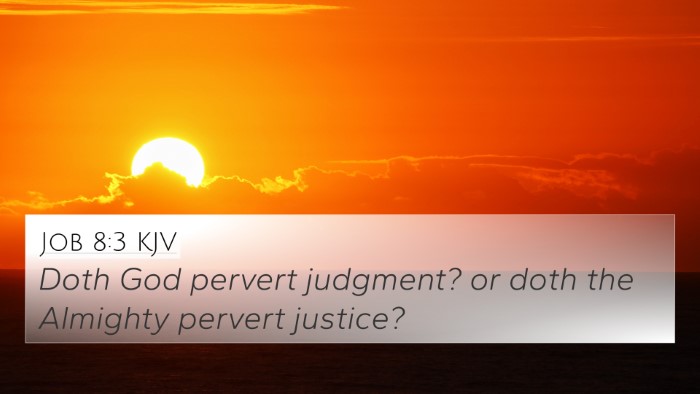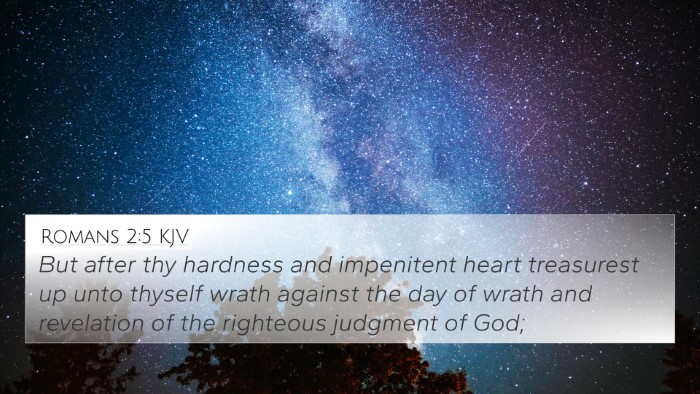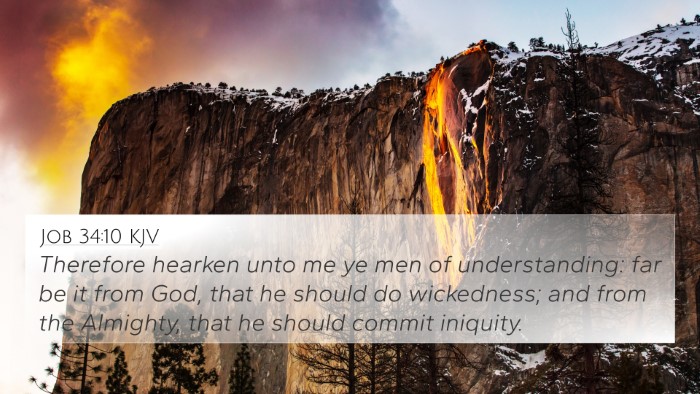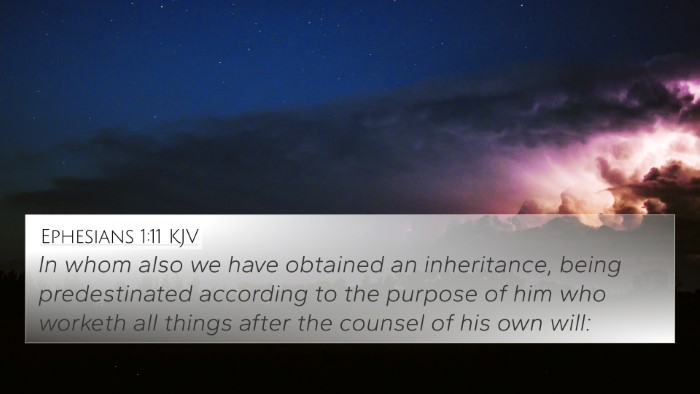Understanding Job 36:23: Insights from Public Domain Commentaries
Job 36:23 states, "Who is enjoined by his way to be just? Or who has said, 'Thou shalt be righteous'?" This verse emphasizes the divine sovereignty and the inherent justness of God. The following insights from public domain commentaries help unravel the meaning and significance of this scripture.
Interpretation of Job 36:23
The verse raises an important rhetorical question about God's authority and the nature of righteousness. By pondering who can demand justice from God, it reinforces the concept that God's ways are beyond human judgment. Let’s explore further insights from the commentaries.
-
Matthew Henry:
Henry emphasizes the majesty of God's governance and notes that no one can question God’s decisions or demand that He act justly according to human understanding. He points out that God's justice is a part of His nature, and it operates perfectly in His divine plan, irrespective of human perceptions.
-
Albert Barnes:
Barnes highlights that the verse illustrates the incomprehensible nature of God's ways. He notes that God's decisions are not accountable to man and that His justice, while sometimes seeming difficult in a world filled with suffering, remains whole and untouched by human expectations.
-
Adam Clarke:
Clarke brings attention to the relationship between divine justice and human beings. He elaborates that nobody can impose conditions on God or dictate to Him what justice should look like. The inquiry provokes deeper reflection on reliance and trust in God’s overarching plan.
Thematic Connections to Other Bible Verses
Job 36:23 can be cross-referenced with several other scriptures that share themes of divine justice, sovereignty, and human inability to judge God. Below are relevant Bible verses that illustrate these connections:
- Romans 9:20-21: This verse speaks to the pottery analogy, emphasizing God’s authority over creation and the right He has as the Creator.
- Isaiah 55:8-9: These verses highlight that God's thoughts and ways are higher than ours, reinforcing the theme of divine transcendence.
- Psalms 97:2: This verse emphasizes God's righteousness and justice as fundamental aspects of His kingdom.
- Jeremiah 10:23: This text acknowledges human limitations in understanding and directing one’s own paths, emphasizing reliance on God's guidance.
- Job 9:12: Here, Job expresses God’s unassailable position over all matters of life, pointing to His control over justice.
- Proverbs 21:1: This passage states that the heart of kings is in the hand of the Lord, indicating His supreme authority over rulers and governments.
- Micah 6:8: This verse summarizes what the Lord requires—justice, love, and humility, further explaining the nature of divine expectations.
Cross-Referencing Biblical Texts
Understanding Job 36:23 through cross-referencing enriches one's study of the Bible, allowing believers to see the interconnections in God’s writings. The links between Job and these referenced passages provide a fuller picture of the Biblical narrative around justice according to God’s plan.
Tools for Bible Cross-Referencing
Several tools available in Bible study can help in linking related scriptures and exploring themes, such as:
- Bible Concordance
- Bible Cross-reference Guide
- Cross-reference Bible Study Tools
- Bible Reference Resources
- Comprehensive Bible Cross-reference Materials
Long-Tail Keywords Applications
Searches like "How to find cross-references in the Bible" or "Identifying connections between Old and New Testament" can yield deeper insights and understanding of passages like Job 36:23.
User Intent: Finding Relevant Scriptures
Believers looking for related verses often ask questions such as "What verses are related to Job 36:23?", indicating the pursuit of understanding God's nature through scripture. Historical and theological studies reveal the importance of contextualizing verses within the greater scheme of scripture.













